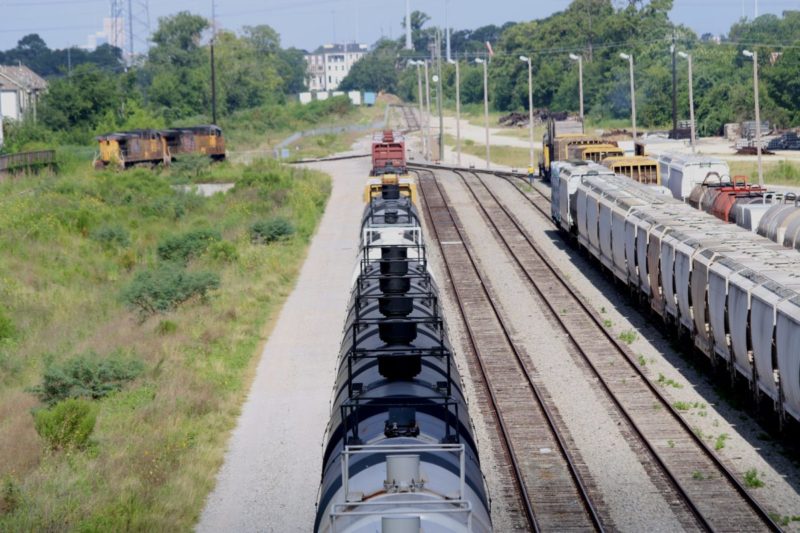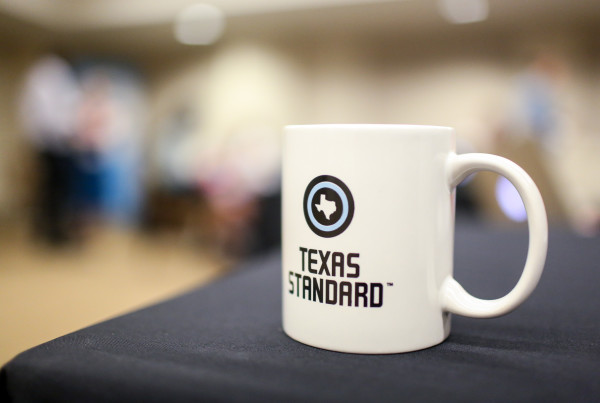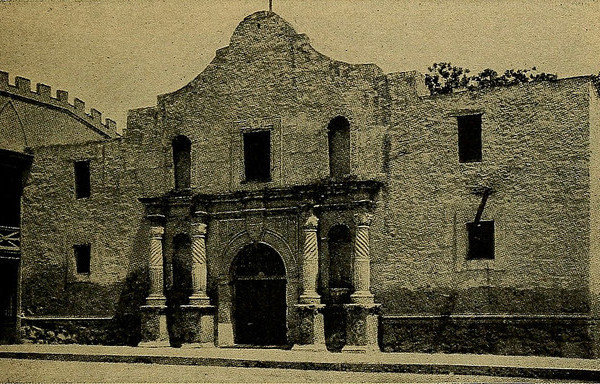From Houston Public Media:
Three years ago this month, a train carrying crude oil blew up in a small town in Canada killing 47 people. Home video showed huge fireballs erupting from a string of tank cars. In Houston, it’s understandable why some people along train routesleading to the refineries and terminals here might be worried.
“I just currently do not feel safe,“ says Leticia Ablaza. Her son attends the Rusk School which sits near a big set of railroad tracks on the eastern edge of downtown Houston. “And I certainly don’t feel safe that it’s passing right behind my child’s school while school is in session.”
Ablaza works with the environmental group Air Alliance Houston and was among a handful of community organizers who met one night last week. Brian Butler, the alliance’s outreach coordinator, told those gathered: “I firmly believe we’ve been lucky to date and I’m worried our luck is soon going to run out.”
Houston has not had a serious crude-by-rail accident since the boom in oil production began in the U.S a few years ago. Four years ago, 12 million barrels of crude a month was flowing by rail to refineries and terminals along the Gulf Coast. The crude-by-rail was largely from North Dakota, and it was a type of crude known for being light and therefore more volatile than other oils.
That caught the attention of a U.S. senate committee last year that wanted to know if the light crude might explode more easily and should therefore more strictly regulated. The committee heard from Sara Feinberg, the head of the Federal Railroad Administration.
“If the studies that are being done by the Department of Energy suggest that we need to address volatility before it’s placed into transport, we should do that,” Feinberg told the committee.
Those studies are on-going and won’t be complete for another year. In the meantime, the Railroad Administration has issued new rules for oil trains, requiring new, stronger tank cars, better brakes, slower speeds, and better coordination with local emergency officials as to what routes the trains will take.
Ed Greenberg, a spokesperson for the Association of American Railroads, told News 88.7: “There have been some high-profile instances that have overshadowed thousands of trains that safely move across without any incident. We want to assure residents that we are continuously looking at ways to improve rail safety.”
Greenberg says less than 1 percent of derailments involve crude-by-rail.
But here’s something else we learned. Remember how we said that four years ago, some 12 million barrels of crude-by-rail a month was heading to the Gulf Coast? That amount began plummeting starting in 2014 according to data from the U.S. Department of Energy. Instead of 12 million, there’s now less than two million barrels a month arriving on the Gulf Coast by rail. Why the huge drop?
“Basically what’s happened in the meantime is pipelines have been built, and they represent a much better economic alternative to move crude oil,” says Sandy Fielden who directs energy research at Morningstar.
Fielden tells News 88.7 that oil had to be moved by rail because there weren’t enough existing pipelines from North Dakota and other producing states north and west of Texas. Now there are, with more nearing completion.
“And many of those pipelines next year will provide direct roots from North Dakota to the Gulf Coast which will effectively remove any need to move that crude oil by rail,” says Fielden.
















